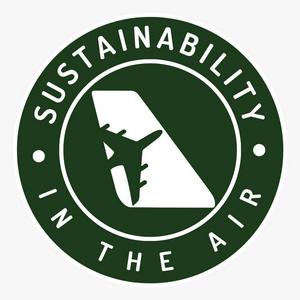Episodios disponibles
5 de 156
- From geothermal to green jet fuel: How Iceland could become aviation’s SAF bridgeIn this episode, we speak with Nanna Baldvinsdottir, co-founder of IðunnH2, about how Iceland’s unique energy system could turn the country into a green fuel bridge between Europe and North America. A veteran of Iceland’s power sector, Nanna has spent two decades working in renewables before turning to hydrogen and e-fuels development.Nanna shares how IðunnH2 is developing a 300 MW, ~70,000 tonne-per-year e-SAF project near Keflavík International Airport, designed first to decarbonise Icelandic aviation and only then supply the wider world via book-and-claim. She explains why social licence for new wind power, local energy security, and predictable permitting make Iceland a testbed for scaling e-fuels where other regions are still stuck on the drawing board.Nanna discusses:Why SAF, not hydrogen export, came out on top in IðunnH2’s feasibility work – and how switching mid-study unlocked a path to true commercial scale rather than niche pilot projects.The Helguvík project: locating a commercial-scale e-kerosene facility a stone’s throw from Iceland’s main international airport, using 100% renewable power contracted via long-term PPAs.Book-and-claim as a strategic tool: using it to serve committed early partners like Luxaviation and other motivated buyers outside Iceland, while keeping the bulk of production for Icelandic decarbonisation.Moving beyond “Jet A price parity”: why chasing price parity with fossil jet fuel misses the point since jet fuel is heavily subsidised and untaxed, and how 15-year price stability can be more valuable to airlines than simply being the cheapest.Her role as a “system builder”: why e-fuel plants are far more complex than traditional power projects, and what it takes to keep partners aligned on timelines, risk, margins, and ambition.The wider Icelandic hydrogen roadmap: how aviation, maritime, and road transport could all draw on the same hydrogen and e-fuels backbone as the market matures.Learn more about the innovators who are navigating the industry’s challenges to make sustainable aviation a reality, in our new book “Sustainability in the Air: Volume 2.” Click here to learn more.Feel free to reach out via email to [email protected]. For more content on sustainable aviation, visit our website green.simpliflying.com and join the movement. It’s about time.Links & more:IðunnH2Why Iceland? - IðunnH2SAF – IðunnH2Hydrogen and E-fuels Roadmap for IcelandNanna Baldvinsdottir - LinkedInEU ReFuelEU Aviation Mandate--------43:17
- How REGENT is creating a fundamentally new mode of transportation with SeaglidersIn this episode, we speak with Billy Thalheimer, co-founder and CEO of REGENT, who shares how the company is redefining travel with their all-electric Seagliders. Thalheimer discusses:Solving the regional travel gap: How seagliders address the transportation problem on 50–200 mile coastal routes, creating a faster, cheaper, and greener alternative for the 40% of the world’s population living in coastal communities.Three breakthrough technologies in one vehicle: How REGENT combines wing-in-ground effect aerodynamics, hydrofoil systems (providing five feet of wave tolerance).Maritime certification, not aviation: Why seagliders operate as vessels under Coast Guard and IMO jurisdiction rather than FAA oversight, with operators certificated as master mariners rather than pilots—solving the regional pilot shortage whilst creating a six-week training pathway for professional mariners.Commercial and defence applications at scale: How REGENT has secured over $10 billion in orders from airlines, ferry operators, and energy companies, with use cases ranging from commuter services to offshore wind farm logistics and military operations.Infrastructure advantage and electrification: Why existing docks can accommodate Seagliders with minimal modification, creating “high-speed rail without the billions in rail infrastructure” whilst leveraging emerging port electrification efforts from the cruise and ferry industries.If you LOVED this episode, you’ll also love the conversation we had with Nathan Millecam, President & CEO of Electric Power Systems (EP Systems), where he talks about designing the ideal battery to power electric aircraft. Check it out here. Learn more about the innovators who are navigating the industry’s challenges to make sustainable aviation a reality, in our new book ‘Sustainability in the Air: Volume 2’. Click here to learn more.Feel free to reach out via email to [email protected]. For more content on sustainable aviation, visit our website green.simpliflying.com and join the movement. It’s about time.Links & More:REGENT Craft REGENT Craft successfully conducts high-speed test of its electric ‘Seaglider’ - MSNThis ‘flying boat’ could be the future of travel in Scotland - The Independent REGENT lands major order for 27 all-electric seagliders to advance coastal mobility - Offshore Energy--------49:41
- Dubai Airshow Special: Can the Middle East’s aviation boom and sustainability ambitions coexist?In this special compilation episode, recorded live at the Dubai Airshow 2025, five aviation industry leaders share their perspectives on whether the Middle East can balance rapid aviation growth with sustainability goals.Featuring insights from:Paul Griffiths, CEO, Dubai AirportsJulien Manhès, Head of SAF and CDR, AirbusYousif Bin Saeed Al Lootah, CEO, Lootah BiofuelsDarren Hulst, Vice President of Commercial Marketing, BoeingMichel Azar-Hmouda, President of Commercial Aviation, CAETogether, they answer one central question: where does the Middle East have the greatest opportunity to lead in sustainable aviation, and what could stand in the way? Throughout the episode, the aviation leaders explore the region’s unique advantages, including large scale infrastructure, abundant renewable energy, strategic geography, and strong political commitment, positioning it as a proving ground for next generation sustainable aviation technologies. They also address the challenges that can potentially threaten progress, from workforce development and supply chain alignment to the difficulty of turning ambition into reality.This is a compilation of highlights from five in-depth conversations. Stay tuned for the full interviews on our Sustainability In The Air platform.If you LOVED this episode, you’ll also love all the conversations we had through the year with dozens of industry executives, technology leaders and scientists. Check out the archive here. Learn more about the innovators who are navigating the industry’s challenges to make sustainable aviation a reality, in our new book ‘Sustainability in the Air: Volume 2’. Click here to learn more.Feel free to reach out via email to [email protected]. For more content on sustainable aviation, visit our website green.simpliflying.com and join the movement. It’s about time.Sponsor message: This episode was recorded live in partnership with the Dubai Airshow 2025 and CAE.For nearly 80 years, CAE has delivered cutting-edge training and simulation solutions across 240 sites in over 40 countries, preparing aviation professionals for critical moments while putting sustainability at the center of what they do.--------19:49
- How Microsoft built the corporate playbook for scope 3 decarbonisationIn this episode, we speak with Julia Fidler, former Director of Market Development for Energy, Connectivity, and Sustainability at Microsoft, who shares how the company built partnerships that are reshaping corporate approaches to scope 3 emissions.Fidler discusses:How Microsoft’s early carbon fee on scope 1, 2, and 3.6 emissions created the foundation for treating business travel not just as a measurable category, but as a gateway to solving fuel emissions.How Microsoft’s Sustainability Grant Program supported early exploration of emerging SAF markets through seed funding for consulting guidance and partnerships, creating a model for corporate innovation in hard-to-abate sectors.Why Microsoft chose to support the most expensive SAF pathway (e-fuels/power-to-liquids) and how the concept of “green premium” enabled a three-way collaboration between Microsoft, Alaska Airlines, and Twelve.How the partnership with IAG and the Chooose removed barriers for hundreds of Microsoft suppliers to purchase SAF for the first time.Why Microsoft’s approach balanced carbon removal procurement with SAF investment alongside demand management, treating these not as competing priorities but as complementary strategies.Fiddler also shares her journey from corporate travel management to leading industry-defining collaborations with airlines and SAF producers, and discusses how she’ll now be scaling these lessons globally through her new role at the RSB.If you LOVED this episode, you’ll also love the conversation we had with Etosha Cave, Co-founder & Chief Science Officer of Twelve, who shares how the carbon transformation company harnesses CO2 from industrial waste streams to produce e-fuels. Check it out here. Learn more about the innovators who are navigating the industry’s challenges to make sustainable aviation a reality, in our new book ‘Sustainability in the Air: Volume 2’. Click here to learn more.Feel free to reach out via email to [email protected]. For more content on sustainable aviation, visit our website green.simpliflying.com and join the movement. It’s about time.Links & More:Microsoft Sustainability Alaska Airlines teams with Microsoft to aid development of Twelve’s E-Jet power-to-liquid fuel - GreenAir News How Microsoft is using an internal carbon fee to reach its carbon negative goal - Microsoft Industry Blogs Microsoft signs sustainable aviation fuel purchase deal with IAG to tackle Scope 3 emissions - ESG Today Why Twelve believes power-to-liquids will revolutionise sustainable aviation fuel production - SimpliFlying--------40:49
- How the oneworld BEV Fund is accelerating next generation SAF technologiesIn this episode, we speak with Matthew Ridley, Director of Sustainability and Innovation at the oneworld Alliance, who shares the story behind the groundbreaking $150 million Sustainable Aviation Fuel (SAF) fund launched in partnership with the alliance’s member airlines and Breakthrough Energy Ventures (BEV).Ridley discusses:The alliance investment advantage: How pooling resources across oneworld members creates access to world-class venture capital expertise, superior deal flow, more diverse portfolios, and geographical networks.Breakthrough Energy’s unprecedented value: Why partnering with BEV provides access to talent airlines struggle to attract, plus synergies with investments in nuclear fusion, energy transmission, and geologic hydrogen.Next-generation focus vs. current needs: How the oneworld BEV fund targets technologies that can take aviation beyond 5-10% SAF adoption to truly change the trajectory of decarbonisation, complementing existing investments.Breaking the alliance mould: How oneworld moved beyond traditional codeshares and interlining to tackle “initiatives of scale”, and how they attracted Singapore Airlines to join despite not being a oneworld member.Reframing aviation’s challenge: Why the problem isn’t aviation itself, but rather the emissions from jet fuel, the only aspect of flight that hasn’t changed since the Kitty Hawk.Ridley also shares insights from his seven years building IAG’s Hangar 51, where he led first-mover investments in ZeroAvia and LanzaJet, and explains why SAF isn’t a transition fuel but rather a permanent solution once emissions are addressed.If you LOVED this episode, you’ll also love the conversation we had with Pasha Saleh, Head of Corporate Development at Alaska Airlines, who shares how the airline is investing in sustainable aviation technologies to achieve its ambitious climate goals. Check it out here. Learn more about the innovators who are navigating the industry’s challenges to make sustainable aviation a reality, in our new book ‘Sustainability in the Air: Volume 2’. Click here to learn more.Feel free to reach out via email to [email protected]. For more content on sustainable aviation, visit our website green.simpliflying.com and join the movement. It’s about time.Links & More:Sustainability - oneworld oneworld becomes first airline alliance to join IATA CO2 connect - IATA oneworld airline partners join with Breakthrough Energy Ventures to invest in new SAF technologies - GreenAir News How Alaska Star Ventures is funding the future of sustainable aviation - SimpliFlying--------46:11
Más podcasts de Economía y empresa
Podcasts a la moda de Economía y empresa
Acerca de Sustainability In The Air
Aviation has many paths to net zero, and few are straightforward. Sustainability in the Air cuts through the noise with clear, expert-led conversations on what’s actually advancing a more sustainable future for flight in one of the hardest sectors to decarbonise.💚 Twice a month, SimpliFlying CEO Shashank Nigam speaks with airline, airport, travel, and energy leaders to unpack the decisions shaping aviation’s climate future.💚 Each month, our Head of Sustainability Dirk Singer adds a Signal episode spotlighting the tech founders building aviation’s next wave of climate innovation.Whether you work in aviation, advise it, or simply care about the future of travel, this podcast is for you.For enquiries: [email protected] more content on sustainable aviation, visit simpliflying.com and join the movement. It’s about time.
Sitio web del podcastEscucha Sustainability In The Air, El Podcast de Marc Vidal y muchos más podcasts de todo el mundo con la aplicación de radio.es

Descarga la app gratuita: radio.es
- Añadir radios y podcasts a favoritos
- Transmisión por Wi-Fi y Bluetooth
- Carplay & Android Auto compatible
- Muchas otras funciones de la app
Descarga la app gratuita: radio.es
- Añadir radios y podcasts a favoritos
- Transmisión por Wi-Fi y Bluetooth
- Carplay & Android Auto compatible
- Muchas otras funciones de la app


Sustainability In The Air
Escanea el código,
Descarga la app,
Escucha.
Descarga la app,
Escucha.






































